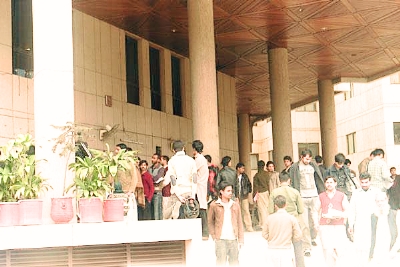For the new session, Islamia College Peshawar announced admission for 2025-2026, and the last date of registration is 8 August 2025. The administration of this institute issued the criteria for seat distribution, fee structure for self-support, regular students, and hostel enrollment.
If you meet the eligibility then you can apply online. It’s the best time to apply to the best institute. First of all, you have to register yourself, and after this, the interviews will be conducted. If you pass it, then you will be invited to get admission. So, have a look at this page to check the complete admission procedure.
Islamia College Peshawar Intermediat Admission 2026
The deadline for ICP admission is 28 August 2025, and after admission form will not be accepted. So, today, submit the admission form and then wait for the Islamia College Peshawar merit list.
- Admission Start Date: July 2025
- Last Date to Apply: 8 August 2025

Programs Offered for FA/FSc/ICS/I.Com
Islamia College Peshawar offers a wide range of 1st-year programs under various disciplines:
FA (Faculty of Arts)
- Perfect for students inclined toward humanities, literature, and social sciences.
FSc Pre-Medical
- Best choice if you’re planning for MBBS, BDS, DPT, or other health sciences.
FSc Pre-Engineering
- Ideal for future engineers and technical fields like architecture or computer science.
ICS (Intermediate in Computer Science)
- A mix of science and tech, great for students aiming for careers in IT, software engineering, or digital systems.
ICom (Intermediate in Commerce)
- For those interested in finance, accounting, and business management.
How to Apply for Islamia College Peshawar Admission?
Visit the Official Website:
- www.icp.edu.pk (or apply through the KP Online College Admissions Portal)
Download or Fill Online Form:
- Choose the program, fill in your personal and academic info.
Attach Required Documents:
- Scan and upload all required documents (details below).
Pay Admission Fee:
- Generate the challan form and deposit it at the designated bank.
Submit Application:
- Either submit online or submit a hard copy at the college counter.
Collect Slip or Wait for Merit List:
- Keep checking the portal or college board for updates.
Required Documents
- Matriculation Certificate / Result Sheet
- Provisional Certificate / School Leaving Certificate
- CNIC or B-Form
- Domicile Certificate
- Character Certificate
- Passport-size Photographs (with blue background)
- Hafiz-e-Quran certificate (if applying on that quota)
- Sports/Minority/Disability certificates (if applicable)
ICP Eligibility Criteria
- Pre-Medical & Pre-Engineering: 70% Marks
- General / Computer Science (I, II & III) and Humanities: 60% Marks
- Dars Nizami / Islamic Theology Students: 50% Marks
Hostel Accommodation for 1st Year Students
Islamia College offers limited hostel facilities for out-of-city students.
- Rooms are allocated based on merit and distance
- Hostel fee: ~Rs. 15,000/year (excluding mess)
- Facilities: Mess, Wi-Fi, reading rooms, sports grounds
- Apply for hostel during the admission process
Contact Details for Admission Office
-
📞 Phone: (091) 9222256, 9222087
-
📧 Email: [email protected]
-
🌐 Website: https://icp.edu.pk
-
📍 Address: Islamia College Road, University Campus, Peshawar, KPK
The admissions are open now for the 2025 session. Islamia College is a big name among the colleges in Pakistan. It has a long history and is one of the best colleges. Every year, it offers admissions and a huge crowd of students applies for it but due to a limited number of seats, only those passing the interviews get admission. This is the time you can apply for it.








